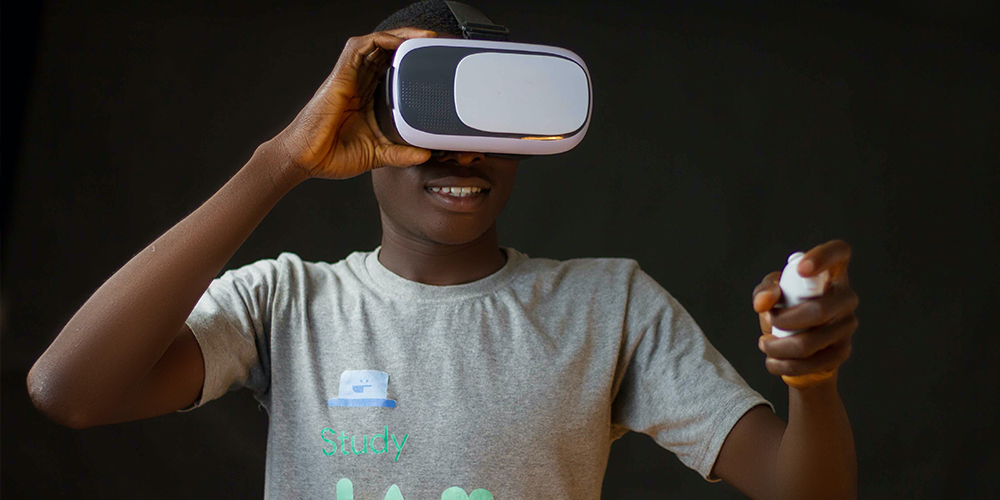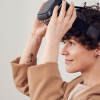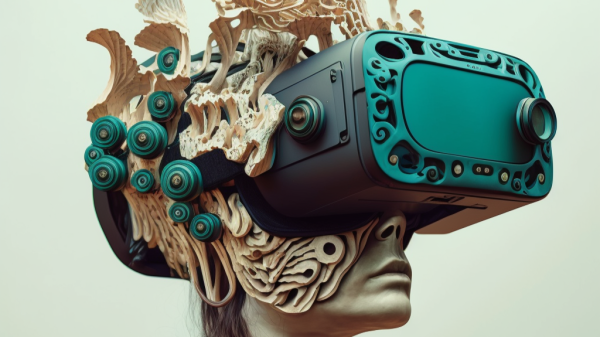When you put on a VR headset for the first time, most people have that ‘whoa’ moment. You’ve entered an enchanting otherworldly place that seems real, but you know it isn’t. You slowly tilt your head up to see a nicely lit blue sky. You turn your head around to see mountains and trees that weren’t there before. And, you finally look down to stare at your hands. Replaced by bright-colored gloves, you flex your hands to form a fist, then jazz hands, and back.
Playing VR games is exciting and interesting for a lot of gamers, and you would (or maybe wouldn’t) be surprised to know that psychologists think so, too. According to The Conversation, psychologists have started researching how people emotionally respond to potential threats using VR.
Do you think this is weird or cool? I’ll let the following help you decide.
So, why did psychologists think using VR would help them in their research?
In earlier studies, psychologists tested “human approach-avoidance behavior”. By mixing real and virtual world elements, they “observed participants’ anxiety on a behavioral, physiological, and subjective level.” Through their research, they found that anxiety could be measured, and “VR provokes strong feelings of fear and anxiety”.
In this case, how did they test emotional responses to potential threats?
For the study, 34 participants were recruited to assess how people have a “tendency to respond strongly to negative stimuli.” Using a room-scaled virtual environment, participants were asked to walk across a grid of translucent ice blocks suspended 200 meters above the ground. Participants wore head-mounted VR displays and used handheld controllers.
Also, sensors placed on the participants’ feet would allow them to interact with the ice blocks in 2 ways. By using one foot, they could test the block and decide if they wanted to step on it. This tested risk assessment. By using both feet, the participants would commit to standing on that block. This tested the risk decision.
The study used 3 types of ice blocks. Solid blocks could support the participant’s weight and would not change in appearance. Crack blocks could also support the participant’s weight, but interacting with it would change its color. Lastly, Fall blocks would behave like Crack blocks, but would shatter completely when stepped on with 2 feet. And, it would lead to a “virtual fall”.
After looking at the data, researchers found out that by increasing how likely an ice block would disintegrate, the “threat” for the participant also increased. And, of course, participants’ behavior was more calculated as more cracks appeared along the way. As a result, participants opted to test more blocks before stepping on the next block completely.
They found that data about a person’s personality trait could also be determined. Before the study, each participant completed a personality questionnaire. Based on the questionnaire and the participants’ behavior displayed in the study researchers were able to profile personality.
During the study, their main focus was neuroticism. And, neuroticism is one of the five major personality traits used to profile people. In other words, someone’s personality could now also be profiled in a virtual world.
So, it all comes down to data and privacy. And yes, this isn’t anything new. Data collection through VR has been a concern for a long while. Starting this month, Facebook is requiring all new Oculus VR owners to link their Facebook account to the hardware. Existing users will be grandfathered in until 2023.
All in all, VR in the medical field isn’t new, and it has come a long way. The question is whether the risk of our personality privacy is worth the cost.
Veronica Garcia has a Bachelor of Journalism and Bachelor of Science in Radio/TV/Film from The University of Texas at Austin. When she’s not writing, she’s in the kitchen trying to attempt every Nailed It! dessert, or on the hunt trying to find the latest Funko Pop! to add to her collection.












































